You, the columnist
How do the masters do it?
I run to my bookshelf and start pulling classic lead scenes for inspiration.
What do you think of these?
*
Ellen Goodman:
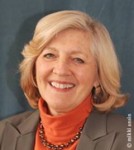
The man stood in the checkout line, holding onto the new bicycle as if it were a prize horse. From time to time, he caressed the blue machine gently, stroking the handlebars, patting the seat, running his fingers across the red reflectors on the pedals.
His pleasure, his delight, finally infected me. “It’s a beautiful bike,” I said to him, shifting my own bundles.
The man looked up sheepishly and explained, “It’s for my son.” Then he paused and, because I was a stranger, added, “I always wanted a bike like this when I was a kid.”
*
Anna Quindlen:
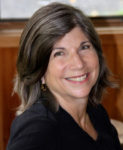
I have two enduring memories of the hours just before I gave birth to my first child. One is of finding a legal parking space on Seventy-eighth Street between Lexington and Park, which made my husband and me believe that we were going inside the hospital to have a child who would always lead a charmed life.
The other is of walking down Lexington Avenue, stopping every couple of steps to find myself a visual focal point – a stop sign, a red light, a pair of $200 shoes in a store window – and doing what the Lamaze books call first-stage breathing. It was 3 a.m.
*
Lewis Grizzard:
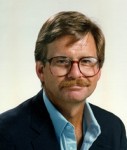
Sunday was my first Father’s Day. What I mean is, Sunday was my first time to be a father on Father’s Day.
That’s not exactly right, either. What I am is a stepfather, but my stepchildren are young – four and seven – so they didn’t know any better than to give me a gift anyway.
I was hoping for a case of imported beer. I got socks. I always get socks when I wish for beer.
Let me tell you about my stepchildren.
*
Jimmy Breslin:
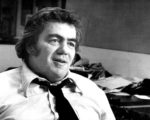
There was one night, after the New Hampshire primary, when Edward Kennedy sat in his house in McLean, Virginia, with Steve Smith, his brother-in-law, and people from his campaign and they were talking about getting out of the race for the presidency.
“I’m going in Massachusetts,” Kennedy said.
They nodded.
“I have to do that,” he said.
They nodded.
Then Kennedy said, “Listen, I’m tired. It’s not hard to consider dropping this.
I’m not having any fun. It’s easy to consider it. But let’s forget about it. I didn’t get into this to get out of it. You want power because it’s an opportunity. We don’t quit.”
He did not.
*
Jimmy Breslin:
On the morning after the shooting, David Rubio, who is eleven and has large brown eyes in a face that could be covered by a palm, came into the living room in a sweatshirt and jeans, a blanket from his bed wrapped around him, and dropped his eighty-five-pound body onto a couch. He yawned and stretched, his bare feet coming out from under the blanket.
“School today?” he was asked.
“Nope. I don’t go to school.”
“When was the last time you went?”
“Four weeks ago. They made me go out of school.”
“How come?”
“Fight too much.”
*
Ernie Pyle:
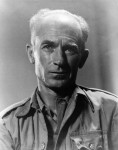
When we stop for a day or two in a hotel for me to write up my pieces, I always have to leave finished columns and parts of columns lying around when I go out to eat.
I always feel a little self-conscious about it, because I know the maids will be in to clean up, and I’ve never known whether maids read what they see lying around or not.
Well, they do. For in Gold Beach, the other day, the maid came in while I was out, and right out of a clear sky she spoke to That Girl as follows: “Say, I didn’t get to finish reading that column on Newport yesterday. I sure do like the way he writes. Has he got any more around I could read?”
***

 I have two enduring memories of the hours just before I gave birth to my first child. One is of finding a legal parking space on Seventy-eighth Street between Lexington and Park, which made my husband and me believe that we were going inside the hospital to have a child who would always lead a charmed life.
I have two enduring memories of the hours just before I gave birth to my first child. One is of finding a legal parking space on Seventy-eighth Street between Lexington and Park, which made my husband and me believe that we were going inside the hospital to have a child who would always lead a charmed life. Sunday was my first Father’s Day. What I mean is, Sunday was my first time to be a father on Father’s Day.
Sunday was my first Father’s Day. What I mean is, Sunday was my first time to be a father on Father’s Day. There was one night, after the New Hampshire primary, when Edward Kennedy sat in his house in McLean, Virginia, with Steve Smith, his brother-in-law, and people from his campaign and they were talking about getting out of the race for the presidency.
There was one night, after the New Hampshire primary, when Edward Kennedy sat in his house in McLean, Virginia, with Steve Smith, his brother-in-law, and people from his campaign and they were talking about getting out of the race for the presidency.
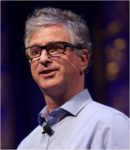 Dave Lieber is The Watchdog investigative columnist for The Dallas Morning News . DaveLieber.org,@DaveLieber.
Dave Lieber is The Watchdog investigative columnist for The Dallas Morning News . DaveLieber.org,@DaveLieber.
